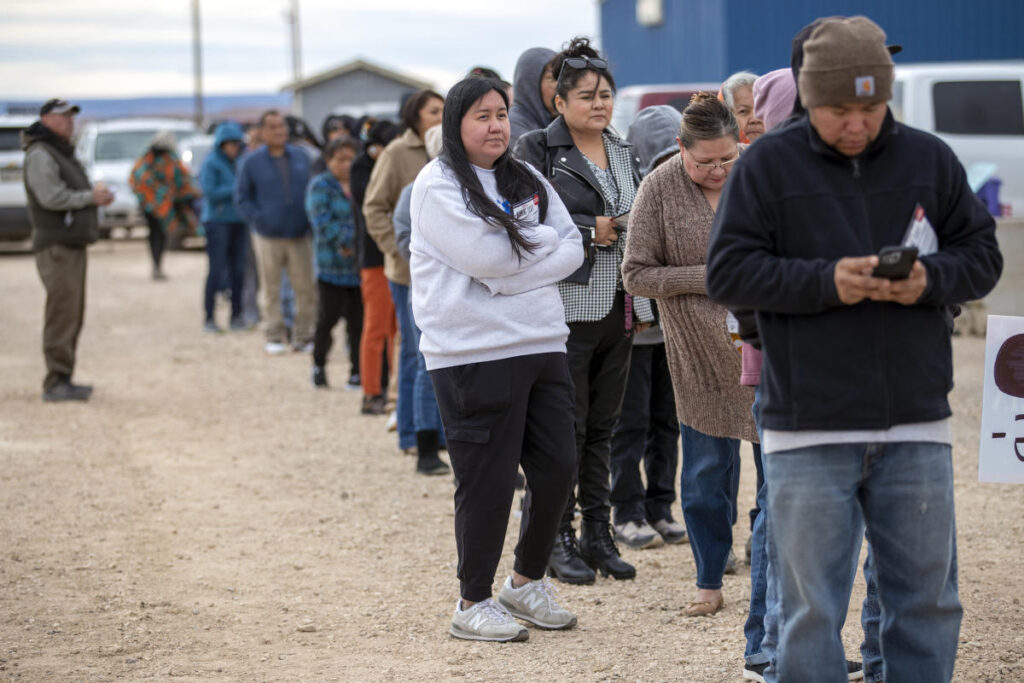In the recent presidential election, a substantial number of American voters indicated that the economy and immigration were their primary concerns, yet an equally strong focus on the future of democracy emerged as a key factor driving individuals to the polls. According to the AP VoteCast survey, which sampled over 110,000 voters nationwide, there exists a palpable sentiment of frustration and a desire for change within the electorate. This election presented a stark contrast between former President Donald Trump and Vice President Kamala Harris, with each candidate framing the election through opposing lenses. Trump sought to position the election as a referendum on the Biden-Harris administration, pinpointing inflation and immigration challenges as failures of their governance. Conversely, Harris attempted to redirect the conversation toward hopeful visions of the future, portraying Trump as a relic of the past posing a risk to the integrity of democratic institutions.
While a significant portion of the electorate, nearly 40%, identified the economy as the foremost challenge, immigration also garnered attention, with about 20% highlighting it as a top concern. Furthermore, the issue of abortion attracted consideration, yet it was the fundamental principles of democracy that resonated most with voters, influencing nearly half of their decisions at the ballot box. This preoccupation with democracy outstripped concerns over other pressing issues such as inflation or border control, as voters leaned toward fundamental questions about the health of the democratic process amidst deepening political polarization.
Trump advantageously portrayed himself as a candidate equipped to better manage the economy and immigration, consistently advocating for policies such as tariffs and increased domestic oil production. In contrast, Harris emphasized access to abortion as a critical matter of personal freedom and sought to promote her policies as solutions to economic woes. The divide in voter sentiment regarding the candidates’ abilities to handle taxes remained relatively balanced, reflecting a deeper desire for meaningful shifts in leadership and policy approaches rather than mere partisan alignment.
Most voters expressed a clear sense of urgency for substantial changes in governance; about 80% of those surveyed desired at least significant adjustments, with a quarter advocating for total upheaval. Nonetheless, the precise interpretation of this desired change varies widely, contributing to national divisions. The respective platforms of Harris and Trump encapsulate contrasting visions of America’s future, with Harris embarking on a campaign only after President Biden exited race considerations amid concerns over his age. Trump, on the other hand, returned to the political scene amid legal troubles and remained a divisive figure, igniting fervent responses to his calls for a return to his former presidential policies.
Concerns surrounding the economy were universally echoed among voters, with around 60% describing economic conditions as poor or subpar. This sentiment wasn’t entirely surprising; as pandemic relief measures dwindled, inflation began to rapidly climb, exposing vulnerabilities within the economy exacerbated by global events, notably the invasion of Ukraine. Notably, the high costs of necessities such as food, healthcare, and housing weighed heavily on voters’ minds, with two-thirds expressing significant worries about grocery expenses. While there were optimistic notes with nearly 60% claiming their finances were stable, an increase of voters identifying as “falling behind” highlighted a growing crisis of confidence in economic recovery.
Despite their respective strengths and weaknesses, both candidates were viewed skeptically in various dimensions. Harris’s experience and promotional rise to the nomination elicited questions of her readiness to lead. In contrast, Trump faced backlash regarding his authoritarian tendencies, particularly following the January 6 insurrection. Nearly 60% of voters expressed concern over a potential Trump presidency steering the U.S. toward authoritarianism, while less than half voiced similar fears regarding Harris. These apprehensions reflect a broader context of uncertainty that the electorate grapples with, prioritizing their values and the foundational health of American democracy in selecting their next leader.

